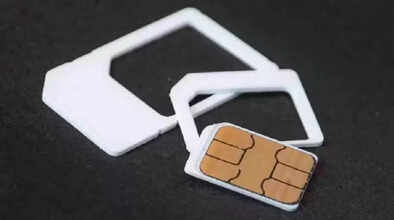Fraudsters have discovered a new way! Now they are duping people like this, the government has issued an alert.
SIM Card Block Scam: The Department of Telecommunications (DoT) of the Government of India has issued a serious warning to mobile users across the country.

SIM Card Block Scam: The Department of Telecommunications (DoT) of the Government of India has issued a serious warning to mobile users across the country. The department has informed that cyber criminals are trying to deceive people by posing as telecom companies or government officials. Especially, people are being asked for their personal information in the name of SIM block and KYC update. This information has been shared by DoT on its official X (earlier Twitter) account.
The government has clarified that neither the Department of Telecommunications, nor TRAI nor any telecom company calls or messages to close the SIM or update KYC. Therefore, be alert immediately on receiving such calls or messages and ignore them.
What is SIM Swap Fraud?
Nowadays, everything from banking to social media accounts is secured with OTP (One Time Password). But cyber criminals take advantage of this OTP system to commit SIM swap fraud. In SIM swap fraud, fraudsters collect personal information of any person and get a new SIM issued from the mobile company on the same number. When that SIM is activated, the SIM of the real user is switched off and all OTPs start coming on that new SIM. After this, criminals can easily intrude into your bank account, social media or other online services.
Government took new steps for security
In view of this increasing threat, DoT has made many changes in the process related to SIM card. Now no new SIM can be issued without biometric verification. Also, after the new SIM is activated, no SMS will be received on it for the first 24 hours. Its purpose is that even if a criminal swaps the SIM, he cannot get the OTP.
How to protect yourself?
Do not respond to any unknown calls or messages, especially if they are talking about SIM deactivation, KYC update or winning a prize.
Do not share your personal documents and information with anyone, even if they are claiming to be an official.
Restrict your information on social media to trusted people only.
Avoid clicking on any suspicious links or emails, as these may be a source of malware that can steal your information.
If you have any kind of suspicion, immediately inform the cyber crime portal or your mobile operator.

